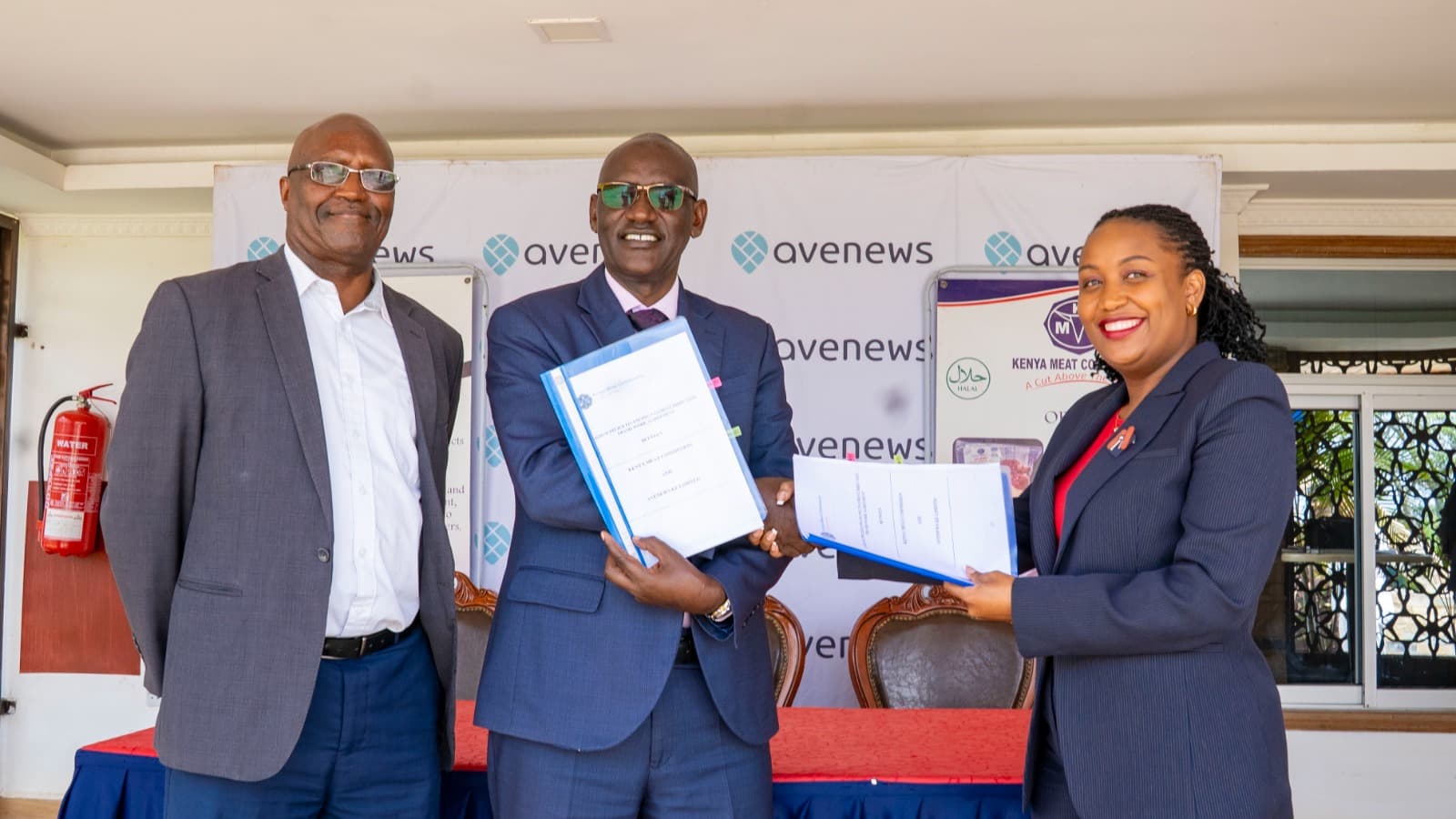We're loading the full news article for you. This includes the article content, images, author information, and related articles.
A landmark partnership between Avenews, Kenya Meat Commission, and the Kenya Livestock Marketing Council aims to unlock credit for a sector vital to Kenya's economy but long-excluded from formal financial systems.

Pastoralists and livestock traders across Kenya are set to gain access to a Sh2.5 billion financing facility starting in 2025, following a strategic partnership aimed at revolutionizing capital access in the sector. The agreement, signed on Wednesday, November 12, 2025, in Nairobi, brings together agri-fintech firm Avenews, the state-owned Kenya Meat Commission (KMC), and the Kenya Livestock Marketing Council (KLMC).
The initiative is designed to inject much-needed liquidity into the livestock value chain by providing working capital directly linked to traders' transactions. This model bypasses the traditional collateral requirements that have historically locked pastoralist communities out of formal credit markets. The livestock sector is a critical pillar of Kenya's economy, contributing approximately 12% to the nation's Gross Domestic Product (GDP) and 42% to the agricultural GDP. It is the primary source of livelihood for millions of people, particularly in the Arid and Semi-Arid Lands (ASALs) that constitute over 80% of Kenya's landmass.
At the signing ceremony, Avenews Kenya Managing Director Nancy Kinyanjui highlighted the core challenge the partnership seeks to address. "Access to credit has long been a barrier for pastoralist and trading communities," Kinyanjui stated. She explained that the sector often operates on informal, trust-based exchanges, a reality that conventional banking models fail to accommodate. "This partnership introduces a financing model that works the way the livestock market actually operates — fast, flexible, and trust-driven," she added.
The programme will leverage Avenews' digital platform, allowing farmers, aggregators, and traders to secure financing instantly at the point of sale. This approach is expected to empower small and medium-sized enterprises (agri-SMEs), pastoral cooperatives, and individual traders to scale their operations, improve cash flow, and build more resilient supply chains. Despite the agricultural sector's significant economic contribution, it receives only about 3.5% of total private sector credit in Kenya, a gap this initiative aims to narrow.
The collaboration is strategically significant, uniting a financial technology provider with two key state and quasi-state bodies governing the livestock industry. The Kenya Meat Commission, under the management of Managing Commissioner Maj. Gen. Jattani Gula, provides a ready market for livestock farmers and is central to the government's agenda of revitalizing the sector. Gula, who was present at the signing, has been tasked with transforming KMC into a commercially viable entity that supports farmers nationwide.
The Kenya Livestock Marketing Council, led by CEO Abdikadir Mohamed, plays a crucial role in representing the interests of livestock producers and traders. Mohamed lauded the initiative, stating it would empower communities across the ASAL regions by modernizing trade and improving liquidity. These regions face immense challenges, including worsening droughts and resource depletion linked to climate change, which have devastated herds and threatened livelihoods. The recent droughts, for instance, led to the loss of over 2.4 million livestock, creating acute food insecurity for more than 4.2 million people.
This financing model aligns with the government's Bottom-Up Economic Transformation Agenda (BETA), which prioritizes value addition and commercialization in key sectors like livestock. By professionalizing the livestock trade and providing predictable capital, the partnership aims to improve the quality and consistency of livestock supply to processors like KMC, thereby boosting the entire value chain from farm to market. A more robust domestic livestock sector not only enhances food security but also holds significant potential for increasing foreign exchange earnings through the export of meat and other animal products.
The Sh2.5 billion facility represents a significant private sector investment into a historically underserved industry. It signals a growing recognition of the commercial viability of pastoralism and the potential for technology-driven solutions to solve long-standing market failures. As the program rolls out in 2025, its success will be measured by its ability to create a more inclusive, transparent, and profitable livestock ecosystem for the millions of Kenyans who depend on it.
Keep the conversation in one place—threads here stay linked to the story and in the forums.
Sign in to start a discussion
Start a conversation about this story and keep it linked here.
Other hot threads
E-sports and Gaming Community in Kenya
Active 9 months ago
The Role of Technology in Modern Agriculture (AgriTech)
Active 9 months ago
Popular Recreational Activities Across Counties
Active 9 months ago
Investing in Youth Sports Development Programs
Active 9 months ago